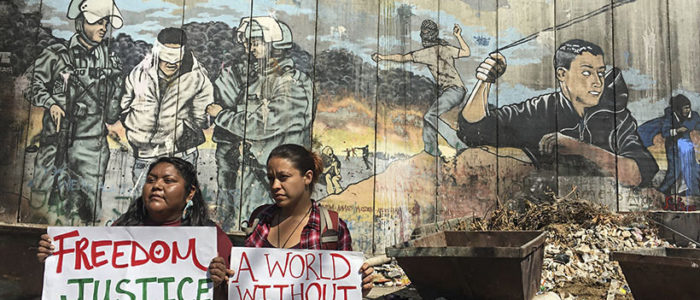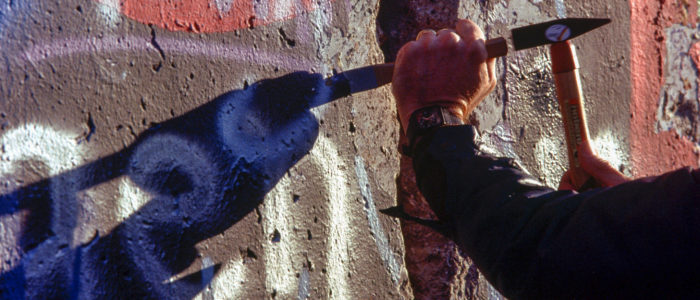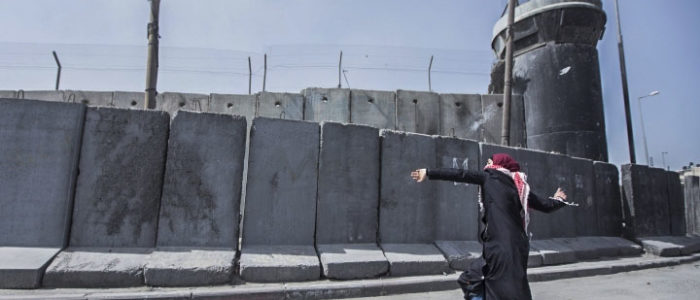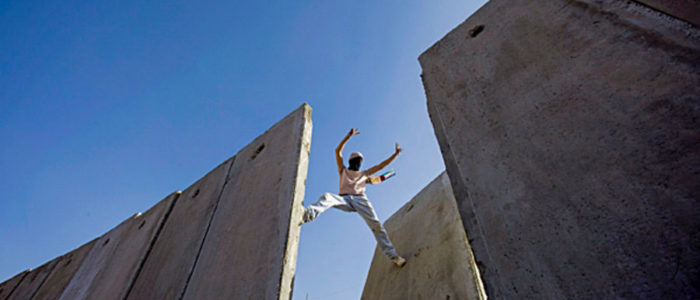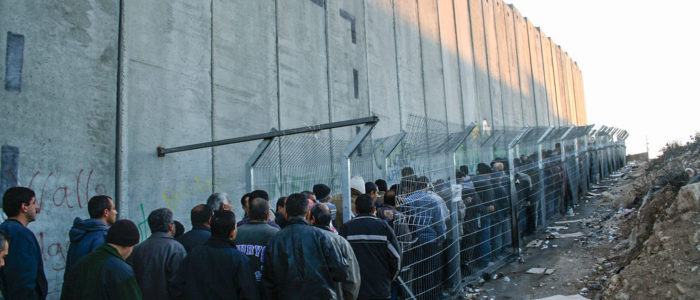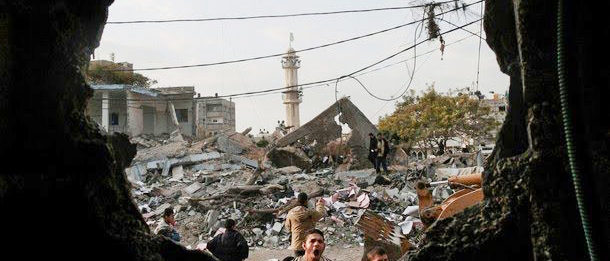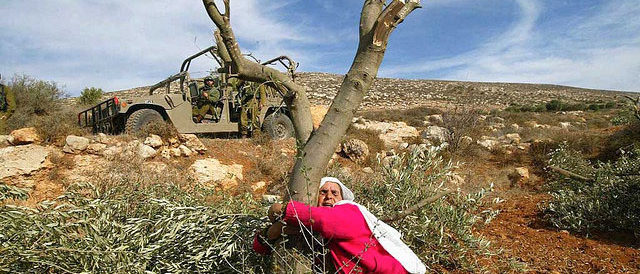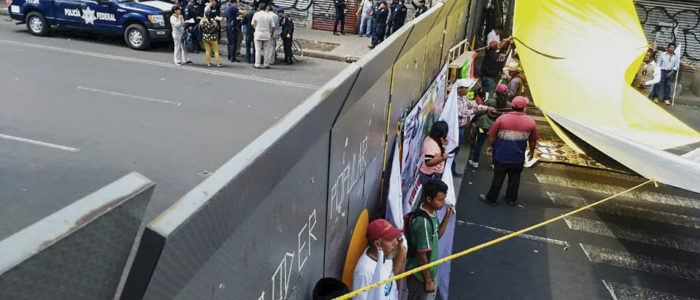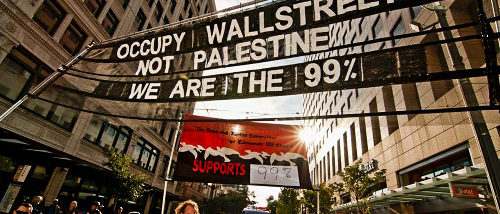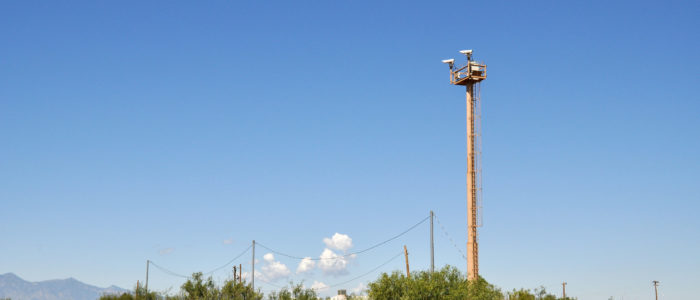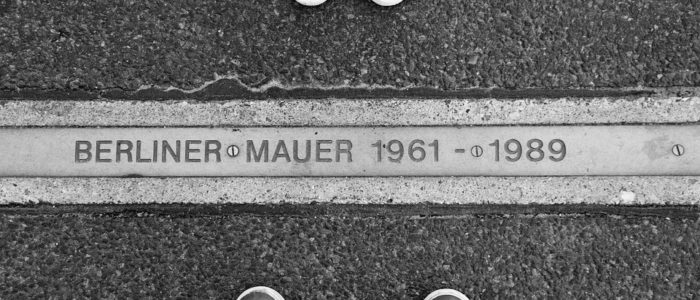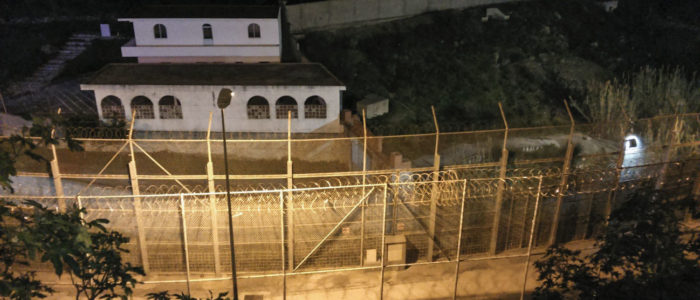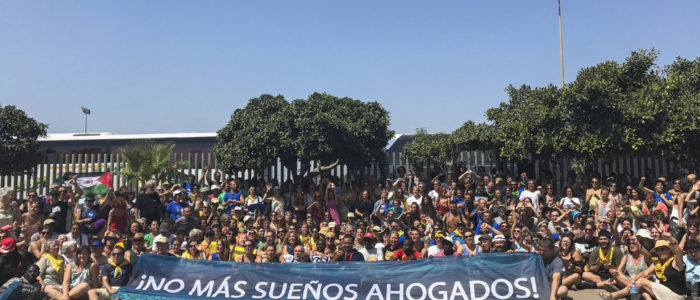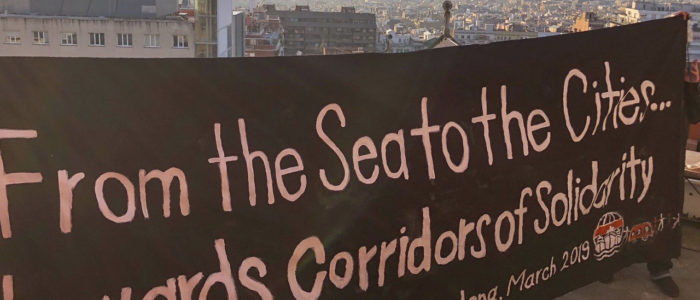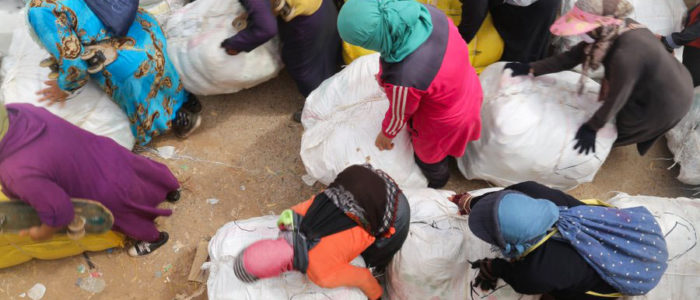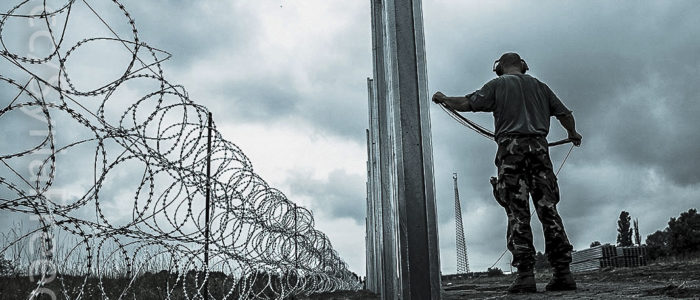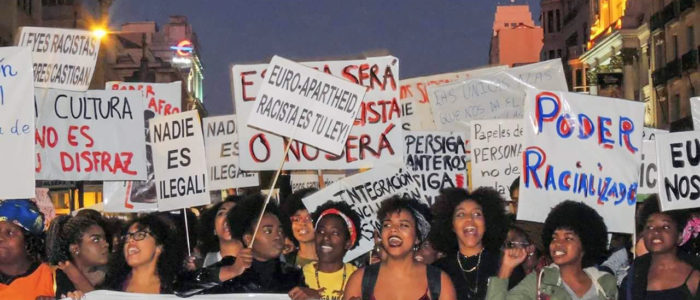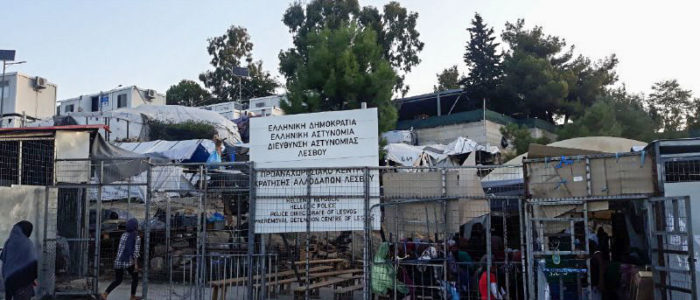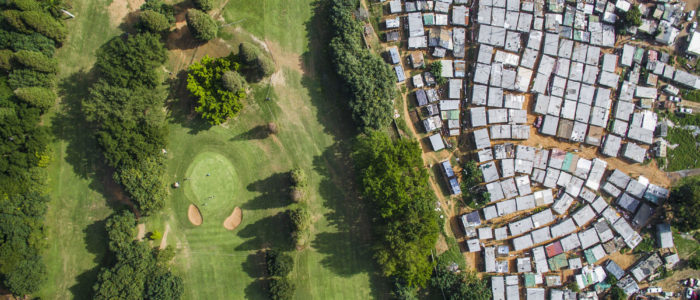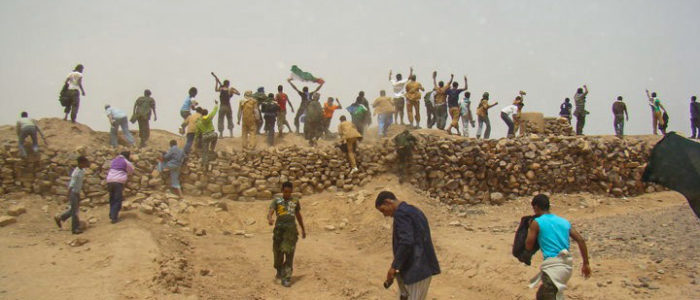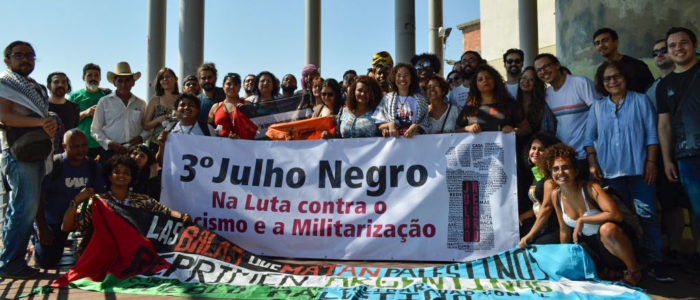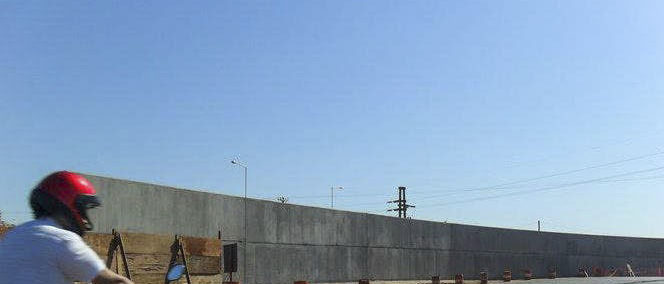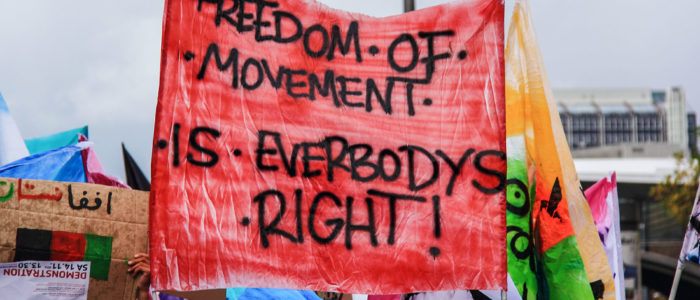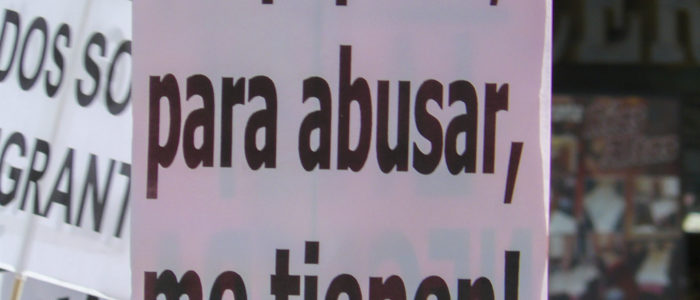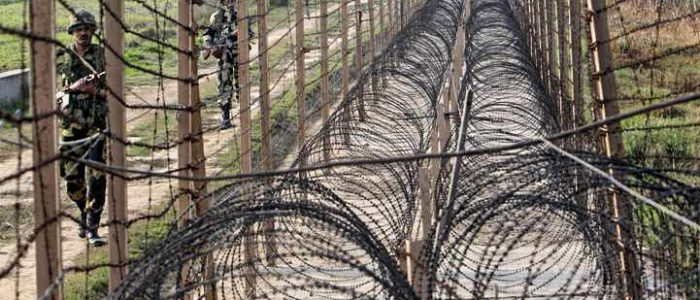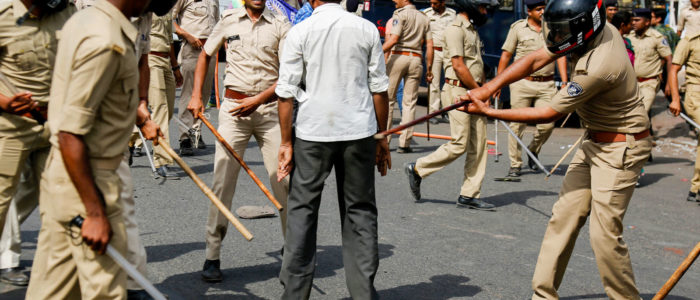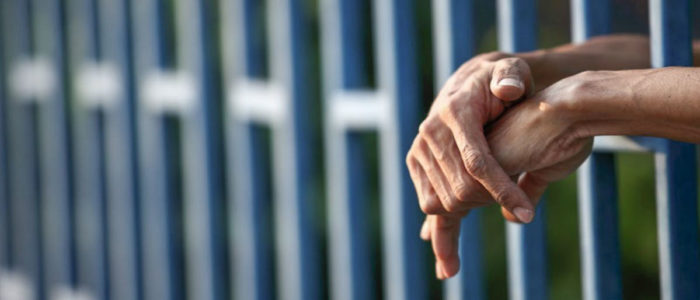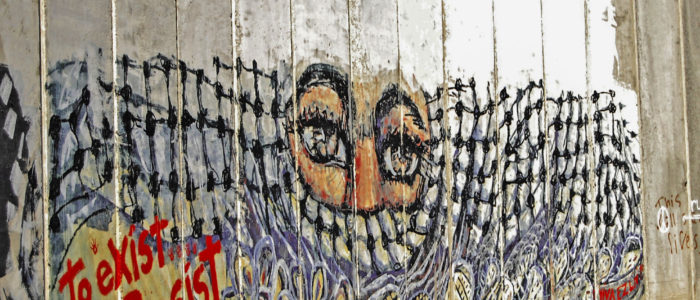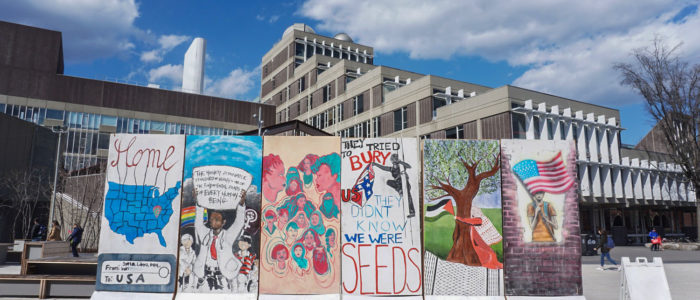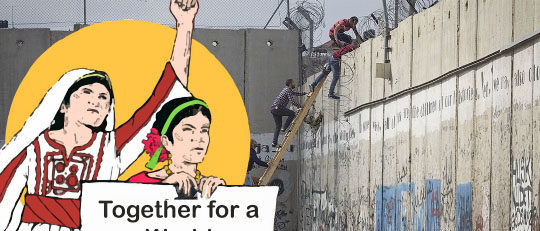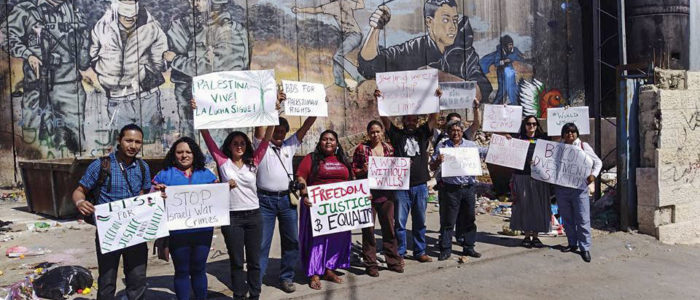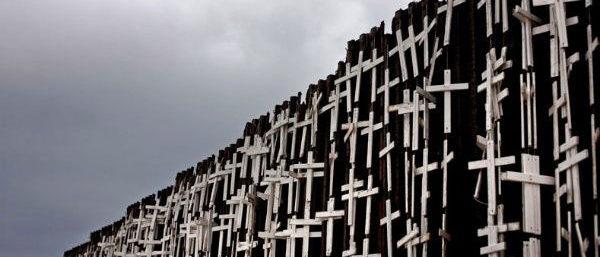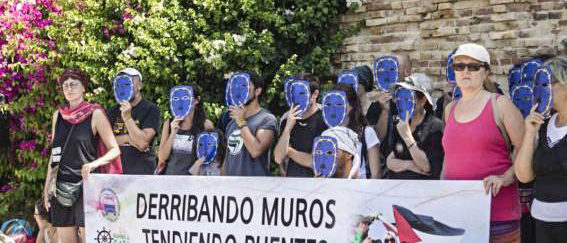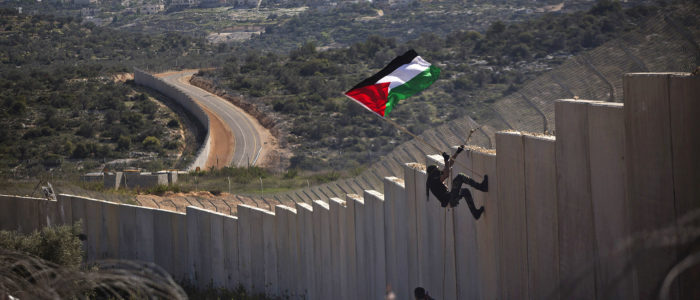(translated by Michael Loomis)
The wall of time at the Moria Camp in Lesbos
Moria Camp, Lesbos, August 2019. (Credits: Oli Oliva.)
I write these words sitting on the stairs that give access to Syntagma Square, with the Greek parliament behind me, surrounded by tourists taking pictures that satisfy their desire to be able to measure the amount of monuments visited and social media likes achieved. Ten years ago, this square was the scene of the struggles and demands of Greek society against the welfare cuts imposed by the powerful elite. It is a symbol that we took as an example during the 15-M movement1 when we took the Puerta del Sol in Madrid and many other squares throughout the rest of the world in order to organize against the mandates of the Troika, formed by the European Commission, the European Central Bank and the International Monetary Fund, that imposed the neoliberal austerity measures on us. Now it is a scene of tourism, impassive in the face of the injustice experienced by refugees in camps a few hundred kilometers from here. I put on my headphones with music at minimum volume to listen to the sounds of the street but, at the same time, to separate myself from people who neither know nor want to learn a word in Greek, from whom I want to feel remote, even if in reality there are greater vital distances.
Taking pictures inside the Moria refugee camp on the Greek island of Lesbos has taken me several days. This act marks the difference between those who are behind the camera and those who are in front of the camera lens. The difference is big. We arrived here with our problems of the accelerated world and allowed ourselves to reject the meat and criticize the excessive use of plastic. If we did it in the proportions that migrants do, we would look at each other with the same strange face with which they observe us when we react to meat or plastic. Yes, the difference in problems is abysmal.
I have spent nine days helping out in the refugee camp of Moria on the Island of Lesbos; a camp where according to the latest data, there are already ten thousand people living. They are considered living here because they cannot be considered to be passing through, when it has been 4 years since some people entered the camp. Such is the case of Abu Arab, a Syrian in his twenties who lost his mother, father, two sisters and three brothers in a bombing in Syria. The war in Syria has not stopped expelling people since its inception in 2011 and its population has mostly used this migratory route through the Greek islands to enter Europe. On their way, they pass through Turkey, a country that only offers humanitarian aid to ten percent of Syrians fleeing the war while charging billions of euros from Europe to prevent migrants from crossing borders. To comply with its agreement with the European Union and in line with its policy of human rights violations, the Turkish government engages in summary deportations of the Syrian families that it intercepts on the Turkish-Syrian border.
In Moria, the papers that enable access to government aid, the ability to apply for a job, and try to access a life like ours, are scarce. Even the process to receive the necessary documents to travel outside the island and opt for a job, take at least 2 years. After a year and a half of waiting, Peri and her husband Ali wanted to leave Greece. They did not want to go to any other European country, but to return to Iraqi Kurdistan, where they left to look for a better life. They have experienced no better life than the one they had before risking death (and paying a huge amount of money to mafias). Twenty one of their relatives crossed in a barge from Turkey to the Greek island where they were arrested on landing and transferred to Moria. They paid a higher price for traveling in a boat with greater security, not like the majority of the 36 thousand people who were swallowed by the Mediterranean, according to figures published by UNITED (an organization that documents the deaths of migrations to Europe), who could not pay a safer ticket. There have always been classes.
Not all people arrive at the Moria camp in the same way. We met a Moroccan boy, without papers, who was caught by the police in Athens. In Greece there are no CIEs (Migrant Internment Centers) as in the Spanish State. Hence, they sent him to the Moria Camp where he awaits a possibility to enter a process of legalization or deportation. More than half of asylum applications are rejected. He chose Greece, but most do not want to stay in the border countries, and prefer the countries of northern Europe like their two Palestinian colleagues who intend to go to Germany. The trio used to hang out in one of the cafes at the exit of the camp, where the volunteers of the NGOs and the migrants share a space but do not mix. Migrants spend hours without doing anything there simply because there is nothing to do. Some beer is sold in Café Moria already in the early hours of the morning and they tell us that at night there is a lot more than only alcohol that runs through their veins. However, one of the boys from Gaza in the camp proudly shows his video editions, persistently repeating that if there is any video editing work, he would be delighted to do so. They have been in the camp for 5 months after they escaped from Gaza, the world’s largest open-air prison, which according to the director of operations in Gaza of the UN Agency for Palestine Refugees (UNRWA), Matthias Schmale will be unfit for human life later by the end of 2019. Gaza collapsed a long time ago due to Israeli policies of apartheid and destruction that the colonial state exerts on its population.
After days here, we received an invitation from our “mother”, an Afghan woman who puts all her enthusiasm in the management of each food distribution dispatch in which she collaborates. We take off our flip flops and access her rooms, one of the three partitions of the container where the corresponding three families live, in only a few square meters. We share a good piece of watermelon with her youngest daughter and son. Now it is a lounge. At night it will become a bedroom by extending sleeping bags on the floor. These metal containers, also called an ‘isobox’ and used mainly for the transport of products in merchant ships, are transformed into homes and offer the best option among the three that exist in the camp, although they have less privacy than tents. The second of the possibilities is a module inside one of the huge tents, where dozens of families live together, separated by military plastics adorned with European Union seals. The last option are camping tents where the thousands of people who most recently arrived in Lesbos have to stay. Far from any pretense to offer homes to the migrants, this is all what the European Union and the Greek government provide in this camp, located in the facilities of former military barracks. Moria Camp has overflowed their capacity and tents extend now even outside the military compound.
The camp is guarded by a security company: G4S, which is had been contracted by the Israeli government for surveillance in prisons where they have arbitrarily locked up and tortured Palestinians. Now G4S runs Israel’s police training center. In addition, military and police patrol the camp with the superiority granted by their weapons. Every day we see, at least on some occasions, how some detainee is guarded in the camp prison. Yes, there is a prison inside the camp. Being detained in the Moria camp is like living inside a Russian matryoshka: every time you open it, you find a smaller one inside. A hundred prisoners locked in cells, inside a jail, inside a refugee camp, located in the middle of an island, in the middle of the sea. Obviously, the only legal proceeding to which the prisoners have been subjected is that of the police on duty. It is these prisoners who will be the first ones to be deported as soon as there is a sufficient number of deportees of their nationality to charter a plane that puts them in the hands of their authorities, those from which many of the migrants are escaping.
The Greek government and the rest of the European Union seem not to want to accept having to give asylum to people who cross the more than 14 kilometers that separates Turkey from Lesbos. They may as well stick to their ideas, but it will be permanent and increasingly obvious delusion, unless the wars, arms trade, the theft of natural resources that the colonial countries take from the colonized countries, the famines, the different types of violence, the social differences between the impoverished populations of Africa and Asia with respect to the opulent European population all end.
The Afghan population is a majority and it is not surprising considering the statistics that show the level of violence in this country as even higher than that in Syria, according to a recent study by the UN Office on Drugs and Crime. The killings carried out by the Taliban are the consequence of a country unsettled by a war in which all the militarized states of NATO participate. Rayma’s story has nothing to do with the Taliban, but with violence even more rooted in global society, it is an intense one. 2 years ago she left with her mother and sister after being repeatedly mistreated by her husband. The NGO with which she works is responsible for distributing daily the same breakfast, almost the same lunch and the same dinner to the women who collect it for the whole family. There may also be men who wait in the long lines in the unbearable heat in the shadow of cardboard and tents, but it is generally the women who spend between five to eight hours sitting daily to collect the three family rations of meals. Waiting becomes the main activity during the day.
The variety of nutrients needed, especially those derived from fruits and vegetables, is slim and some simply lack completely. All this causes anger, often leading to fights, shouts, shoves and aggressions at a daily basis. For however many meetings that are being convened with the leaders of the different communities of the various regions of origin of the refugees, mostly from the different Afghan regions (approximately 50 men and only one woman), nothing changes. With each fight our sense of helplessness increases as we see the needs of the families and the fact that the NGOs and eurocentric institutions that carry all the command in the camp curtail any possibility of the communities to take responsibility and organize themselves.
It is the hundreds of children who embrace us with each greeting, with each game, with each farewell that haven’t lost their spontaneous warmth. Their smiles alternate with kicks and punches, which bring one back to reality. They are fully aware of living in a refugee camp where they see daily violence in their elders which is impossible to contain. This is partly because of a terrible past, but also due to a long journey full of difficulties, the daily life in deplorable living conditions and feelings of hopelessness. Even so, life continues. This is manifest in the dozens of pregnant women who line up in the front rows to receive their food ration, at the same time as the rest of the camp. We wonder how they can give birth in such dire, inhumane and deplorable conditions. The words of Pepe Mújica, former president of Uruguay, come to mind when he argued that having sons and daughters is one of the few possibilities for people without a name to be someone, especially women.
Munir, the twins Samira and Sahara, Mese and their little brother with their ball, Nur, the brothers Allah and Omar, along with Bisbal, Bahara, and Malica fill the camp with life and fill us, the volunteers and activists who wander around with a lost look; some with the sentiments of saving the planet and others wanting to avoid feeling like tourists taking pictures of a desolate landscape, with their joy.
1 The anti-austerity movement in Spain, also referred to as the 15-M Movement or the Indignados Movement, began with demonstrations on 15 May 2011 close to the local and regional elections, held on 22 May 2011.
